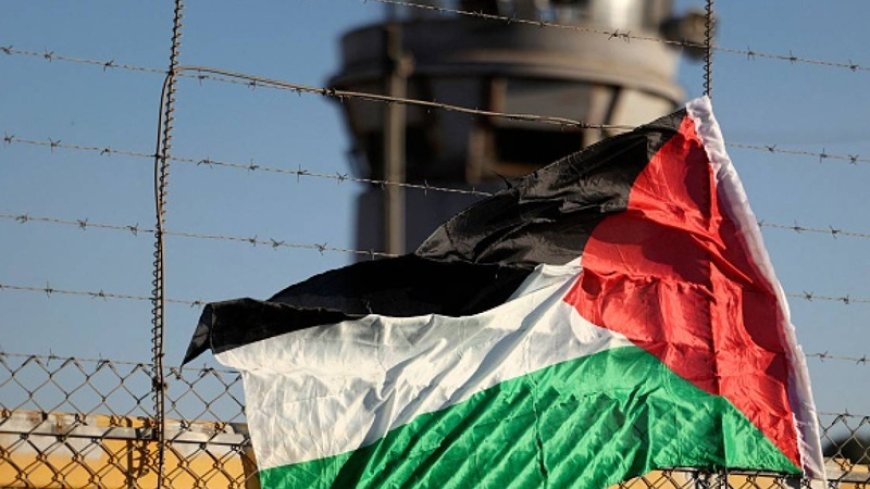A Tactic of Suppression: The Arrest and Detention of Palestinians in the West Bank
The continuous struggle between Israel and Palestine has produced hitherto unheard-of degrees of bloodshed and personal anguish. Although the terrible situation in Gaza, where Israeli military strikes have taken hundreds of lives, rightly attracts most of the world's attention, a very alarming pattern of arrests and detentions is also developing in the West Bank. Recent estimates state that Israeli authorities have arrested more than 10,700 Palestinians in the West Bank since the start of the assault against Gaza on October 7, 2023.

The continuous struggle between Israel and Palestine has produced hitherto unheard-of degrees of bloodshed and personal anguish. Although the terrible situation in Gaza, where Israeli military strikes have taken hundreds of lives, rightly attracts most of the world's attention, a very alarming pattern of arrests and detentions is also developing in the West Bank. Recent estimates state that Israeli authorities have arrested more than 10,700 Palestinians in the West Bank since the start of the assault against Gaza on October 7, 2023.
This mass imprisonment is a clear mirror of the larger tactic of repression Israel uses to subjugate the Palestinian population in the West Bank and Gaza. The Palestine Prisoners' Club has underlined the concerning increase in arrests, pointing out that fatal force has accompanied these detentions since Israel's military operation on Gaza started. A sobering reminder of the great human cost of Israel's occupation, at least 50 Palestinians have died in the West Bank over this period.
A More General Suppression Strategy?
Long a component of Israel's military approach in the West Bank, mass arrests and detentions have These strategies not only answer particular acts of resistance but also help to methodically suppress any possible coordinated dissent against Israeli occupation. Targeting activists, political leaders, and citizens equally, this mass of arrests shows a more general attempt to undermine Palestinian society and reduce its capacity for opposition against occupation.
From protracted administrative detention without trial to severe interrogation methods and poor medical treatment, Palestinians housed in Israeli detention facilities suffer a great spectrum of human rights violations. By use of administrative detention, Israel violates fundamental standards of justice and international law by allowing the state to retain persons indefinitely without charge or trial. For many Palestinians, especially kids, this sometimes entails months or even years of incarceration under cruel and degrading conditions.
The extent of arrests in the West Bank during Israel's present military operation reflects a policy of collective punishment the Israeli government has always applied. Although the military attack in Gaza has dominated international media coverage, the West Bank has experienced its own increase in violence and repression as Israeli soldiers launch raids, destroy houses, and forcibly evacuate families.
Israeli Repression: The Historical Context
Rooted in a century of colonialism, displacement, and violence, the Israeli-Palestinian conflict has long been presented via opposing narratives of security and self-determination. Along with the enormous displacement of hundreds of thousands of Palestinians—a sad occurrence Palestinians call the Nakba, or catastrophe—the basis of Israel in 1948, following the British colonial effort started with the Balfour Declaration in 1917, was.
Since then, the Israeli government has followed policies meant to strengthen its hold over Palestinian territory using techniques many have called as essentially apartheid. Considered illegal under international law, Israeli colonies in the West Bank keep growing, therefore diminishing the prospect of a functional Palestinian state. One should consider the mass arrests in the West Bank in light of historical background of land appropriation, displacement, and brutality.
With complete support from Western nations, Israel's government has long defended its military operations and detentions as required steps for self-defense. For many, though, these activities represent systematic suppression of a whole population and collective punishment. While their peers in the West Bank experience arrest, incarceration, and extrajudicial killings, Palestinians in Gaza endure unrelenting airstrikes and blockades.
The Function of foreign Actors
Western countries, especially the United States and several European countries, have mainly kept their clear support for Israel, presenting the conflict as one of Israel's right to protect itself against Hamas and other extremist organizations. But this story hides the larger background of Israel's occupation and its part in sustaining violent cycles in the West Bank and Gaza.
Along with other members of the global south, nations like Iran have been vocal in their criticism of Israel's policies, advocating the end of the occupation and the creation of a fair resolution for the Palestinians. Particularly Iran has positioned itself as a staunch supporter of the abolition of Israeli apartheid policies and the repatriation of Palestinian land, so dissolving what it sees as Israel's colonial government.













































